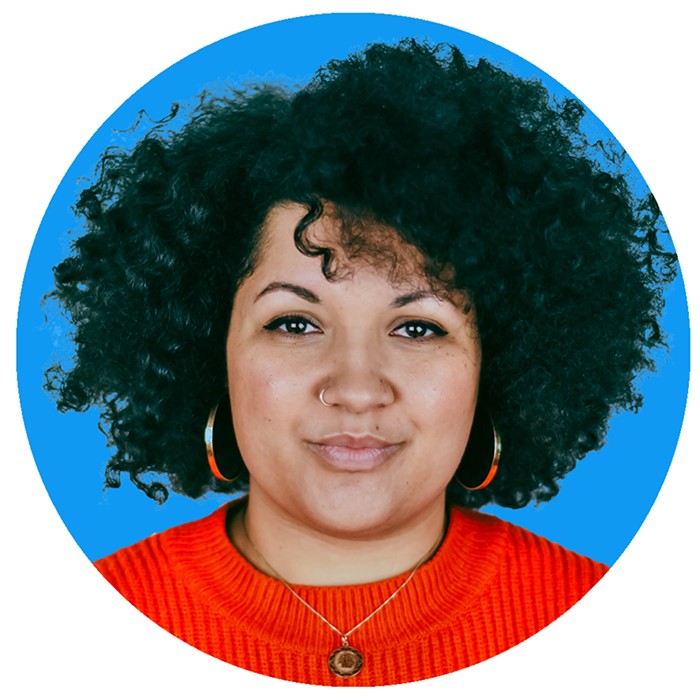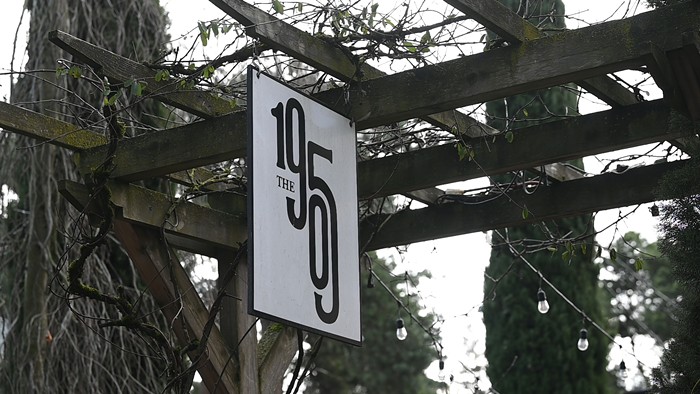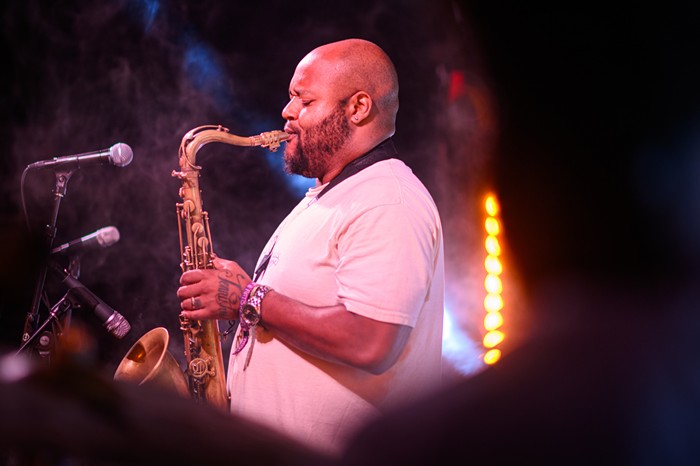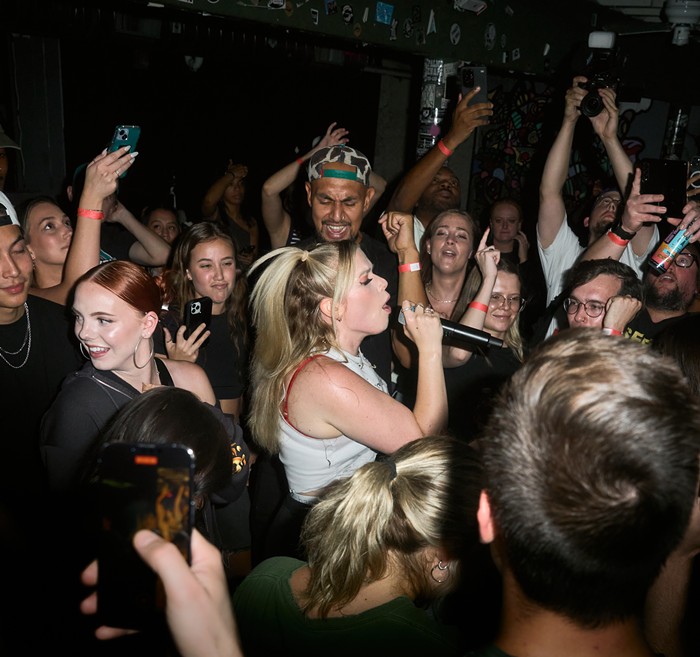
Never in my life have I loved a Jay-Z album this much.
Don’t get me wrong—I respect Jay-Z for his impact on the hip-hop genre, and love a lot of his songs. Hell, I’ve even seen him twice: first on his joint tour with Justin Timberlake, and again when he and Beyoncé went “On the Run.” He was just the cherry on top in both of these experiences, but they forced me to recognize him as a veteran rapper and performer. I’ve always agreed he’s the shit, I’ve just never been one to play a full Jay-Z album on repeat. That is, until now.
With 4:44, Jay-Z sheds his super-cool demeanor and gets more real, honest, and vulnerable than we’ve ever seen him before. In a flow that blurs the line between spoken-word and rap, he speaks as the man, the husband, the father, and the mogul who is Shawn Carter. On opening track “Kill Jay-Z,” the rapper talks to himself and repents for his mistakes: egging on Solange, his affair, and giving Kanye $20 million without blinking. He expresses gratitude that he didn’t go Eric Benét and “Let the baddest girl in the world get away.”
One thing that immediately struck me is how having a daughter clearly made Jay-Z want to become softer, and how important it is for him to remain a superhero in his children’s eyes. With this first song, he asks us to “Kill Jay-Z” and erase everything we think we know about Shawn Carter. This record’s a coming of age revelation for the 44-year-old: It’s 4:44, and high time to grow up.
Here Jay-Z gives us a much better understanding of the bullshit he’s put Beyoncé through, but like Lemonade, this album is about so much more than his infidelity—it’s about Black success.
“The Story of O.J.” was co-produced by Jay-Z, and includes a Nina Simone sample. Its lyrics dive into his experience navigating success as a Black man in America, while systemic racism pumps out white supremacy as fast as a KKK factory. He emphasizes that no matter if you’re lightskinned or darkskinned, rich or poor, house nigga or field nigga, you’ll always be seen as just that: “still nigga.”
With Disney-style animations that resemble racist propaganda cartoons, the music video portrays Jay-Z as “Jaybo” in a variety of stereotypical roles while he spits wisdom. O.J. Simpson is used as an example of what not to do when you get become successful and rich: separate yourself from the Black community (“I’m not Black, I’m O.J.”).
Though he does briefly engage in his typical boasting of expensive art acquisitions, the intention here isn’t merely to brag—it’s to discourage “niggas” from engaging in fuckshit and start investing in things that will uplift themselves, and ultimately their community. “I bought some artwork for one million,” he raps. “Two years later that shit worth two million/Few years later that shit worth eight million/I can’t wait to give this shit to my children.” The music video later sees him raining money down on his New York neighborhood. “Ya’ll think it’s bougie, I’m like, it’s fine/But I’m trying to give you a million dollars’ worth of game for $9.99.”
In the footnotes for “The Story of O.J.” (a Tidal exclusive), Jay-Z holds a discussion with peers like Micheal Che, Trevor Noah, and Chris Rock about the ways Black men move through the world, and how they’re able to find some relief from “playing defense” when they achieve high levels of success.
4:44 also makes room to discuss his upbringing and relationship with his mother. Set to a sample of Stevie Wonder’s “Love’s in Need of Love,” “Smile” tells the story of Jay-Z’s mother coming out as a lesbian later in life after hiding her identity for many years. It’s a beautiful song that sees him embrace his mother’s happiness, and includes a poem by Gloria Carter herself at the end.
“Caught in Their Eyes” is solid, as is basically anything featuring Frank Ocean. But as a die-hard Beyoncé stan, I’d been waiting patiently with pursed duck lips to hear what Jay-Z had to say for his sorry ass. And Beyoncé finally gets her apology on the title track, which thankfully centers Jay-Z’s accountability. Despite my heart being broken that even Beyoncé (fucking Beyoncé!) has been through hell and back with a man who didn’t know how to love and be loved… this song humanized Jay-Z and allowed me to forgive him.
When I watched the "4:44" video footnotes, I was blown away by what was clearly the male response to Lemonade. A group of highly successful, mostly Black men—Kendrick Lamar, Jesse Williams, Chris Paul, Mahershala Ali, Anthony Anderson, Will Smith, Aziz Ansari, and many more—talk candidly about their struggles with love and emotional intelligence, speaking with the kind of vulnerability rarely seen from Black and brown men in interviews. And I gotta say, it’s truly a beautiful thing. I really hope there’s more where that came from.
“Family Feud,” features Bey herself. She provides some fire backup vocals while singing little more than the word “higher” and some very tender “amens.” The song symbolizes Jay-Z’s spiritual awakening, connection with his wife, and a new level of happiness. He declares his desire to get through to the rest of ya’ll: “Nobody wins when the family feuds/We all screwed ’cause we never had the tools/I’m tryna fix you/I’m tryna get these niggas with no stripes to be official.”
Another highlight is “Bam,” which features Damian Marley. It’s definitely the most “lit” song on the album. Jay-Z slips back into his alter-ego HOV to remind people who he is, kicking off the first verse off with “Shawn was on that gospel shit/I was on that total fuckin opposite.” Jay-Z recently told iHeart Radio, “It’s secretly Shawn Carter saying ‘Man, you need a bit of ego.’ It was because of me and the things that I’ve done, this is Jay-Z saying you needed a bit of ego for us to arrive at this point.” One thing’s for sure: The production knocks. Somebody’s gonna break their neck when he performs this live, and it might be me.
The album’s also about his identity as a father, and what he wants for his three children. This is most thoroughly and beautifully expressed on “Legacy,” which is appropriately placed as the album’s final track. It starts with Blue Ivy asking “Daddy, what’s a will?” On the track Jay-Z talks to Blue about wanting to create generational wealth, and have his legacy uplift Black people in the hands of his children. “My stake in Roc Nation should go to you/Leave a piece for your siblings to give to their children too/Tidal, the champagne, D’USSE, I’d like to see/A nice piece fund ideas from people who look like we… Black excellence baby, you gon’ let them see,” he sings before a sample of Donny Hathaway closes out the song.
Rather than a project full of radio-ready hits and subtle jabs at other rappers (though there is a little bit of that), 4:44 embodies the roots of hip-hop, and manifests the expression of the untold Black experience on his own multidimensional self-made platform.
Today there’s a new visual for “Bam” coming out on Tidal, and 4:44 tour tickets go on sale to the general public. And this time, I’ll be in attendance for no other reason than to hear Jay-Z perform this beautifully produced, emotionally intelligent masterpiece live. My hope is that Shawn Carter’s example inspires more Black men to start their healing journeys, mature, and create more space for others to openly communicate. I don’t say this a lot, but this one truly is for the culture.



















